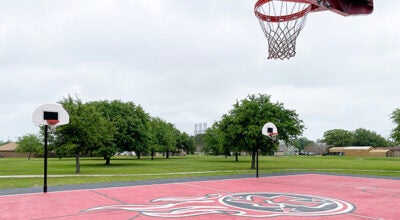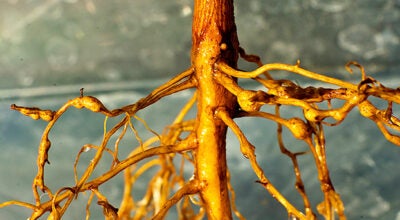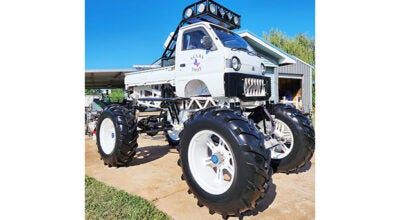OUTDOOR NEWS: TPWD approves shad collection results
Published 10:37 pm Wednesday, February 8, 2017
The Texas Parks and Wildlife Department (TPWD) Commission at its Jan. 26 public hearing approved changes to the regulations on the possession and sale of gizzard and threadfin shad collected from public waters.
The change will require persons who use containers exceeding 82 quarts in volume for collection and possession of shad from public fresh waters to obtain a $60 Permit to Sell Nongame Fish Taken from Public Fresh Waters. Persons collecting shad for use as bait or prey in private lakes would need a permit if their container volume exceeds 82 quarts.
No permit is required if the shad are used only as bait on the lake where they are collected, or if a licensed fishing guide possesses and furnishes the shad as bait to customers as part of the guide’s services. A permit will continue to be required if the shad collected are sold or exchanged for anything of value regardless of the container size used.
According to TPWD Inland Fisheries Director of Information and Regulations Ken Kurzawski, this change allows the department to better monitor shad harvesting to ensure their sustainability in Texas fisheries and addresses concerns about the spread of invasive species.
“Zebra mussels are the primary threat,” Kurzawski said.
“Before this change, no permit was required if the shad were not sold, so there was less opportunity to inform those users of the risks of the zebra mussel transfer … so these regulations give us an avenue to do that.”
Kurzawski added that most of the public comment made on the proposed changes were in agreement with the rules. He said there was concern about the change impacting fishing guides, but that they’ve crafted the rule in a way that guides can continue to operate as they do in adherence with existing regulations.
Information on obtaining a Permit to Sell Nongame Fish Taken from Public Fresh Waters can be found at http://tpwd.texas.gov/
ANNUAL CRAB TRAP CLEANUP FEB. 17-26
Each February for more than 15 years, countless volunteers spend 10 days on the water along the Texas coastline searching the bays for abandoned crab traps left to foul shrimpers’ nets, snag anglers’ lines, “ghost fish,” and create unsightly views. To date, they’ve hauled off more than 32,000 of these derelict traps.
Between Feb. 17-26, Texas coastal waters will be closed to crabbing with wire mesh crab traps to facilitate the annual volunteer crab trap cleanup. Any traps left in bays, including traps tied to docks, will be assumed abandoned and considered “litter” under state law. This allows volunteers to legally remove any crab traps they find.
Volunteers are needed to assist in the coast-wide effort to remove the numerous traps that have been lost or abandoned since last year’s cleanup. To facilitate volunteer trap removal efforts, the Texas Parks and Wildlife Department (TPWD) will provide crab trap drop-off sites at locations in each major bay system along the coast from 8 a.m. to noon on Saturday, Feb. 18, weather permitting.
Additionally at all sites, dumpsters or collection areas marked with banners will be available to receive traps for the duration of the closure. Volunteers may focus their efforts on Feb. 18 or work at their own pace anytime during the closure, but traps cannot be removed prior to Feb. 17 or after Feb. 26.
The Coastal Conservation Association Texas, Coastal Bend Bays & Estuaries Program, Galveston Bay Foundation, and the U.S. Fish and Wildlife Service are providing continued support to the crab trap removal program. Numerous other organizations and companies also are volunteering their services.
To participate, volunteers may pick up free tarps, gloves, trap hooks and additional information at their local TPWD Coastal Fisheries field stations. TPWD requests that volunteers who remove traps record and submit information about the number of traps they collect as well as documenting any sightings of diamondback terrapins.
The local TPWD coordinator will be Carey Gelpi at 409-983-1104 (ext. 222) and the designated drop-off site will be at the Pleasure Island Marina Boat Ramp.
— Staff reports





